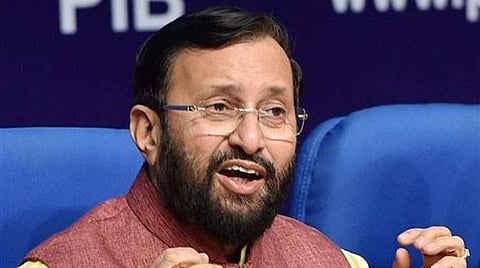

NEW DELHI: All India Council for Technical Education, under the Union ministry of human resources development, for the first time, has released “model” curricula for over 10,000 engineering and management institutes in the country.
The new model, which was released by Union HRD minister Prakash Javadekar in New Delhi on Wednesday, gives more stress on practical training, makes internship mandatory and prescribes extended induction programmes to improve the industry-preparedness of the students.
The new rules, however, do not apply to Indian Institutes of Technology (IITs), National Institutes of Technology (NITs) and Indian Institute of Management (IIMs).
The Council, acting on the recommendations given by four expert committees which were constituted to suggest ways for enhancing the quality of education in technical institutes, has also made one-year institutional training compulsory for those who wish to join engineering institutes as teachers.
While talking on the initiatives taken by the AICTE, Javadekar said that existing syllabus has been revamped by preparing a model curriculum as “an updated curriculum is the students’ right”.
He also said that the inclusion of mandatory internship, both industry and social, will help engineering graduates connect with the need of the industry and society at large.
The ministry also said that even the model syllabi, released now, should be updated every year to make them more relevant to the changing times.
The move comes after long-standing concerns about industry-ready engineers and management graduates and falling standard of teaching in most private technical institutes.
“The new syllabi for BTech, MTech and management courses have been developed with a view to make the engineering and management students employable who are equipped with the latest knowledge in the respective field,” an AICTE official said.
“The idea is to enable students with the current topics which are relevant from industry point of view like machine learning, artificial intelligence and mandatory internship in case of engineering.”
“As per the BTech curriculum, first-year students will have fewer of theory classes and will have to go three-week induction programme in the first semester. The curriculum has been designed to keep the final semester free to pursue only project works so that the students can have hands-on-experience,” the official added.
The new norms say that BTech course in engineering institutes will be graded for a maximum of 160 credits on the basis of portions they replicate from the model curriculum while in case of MTech and Management courses these credits will be 66 and 102 respectively. The institutes, however, will be allowed some degree of flexibility in designing their syllabi.
As per AICTE’s own estimates, more than 29 lakh engineering students graduate in India every year but less than 10 per cent of them are employable.